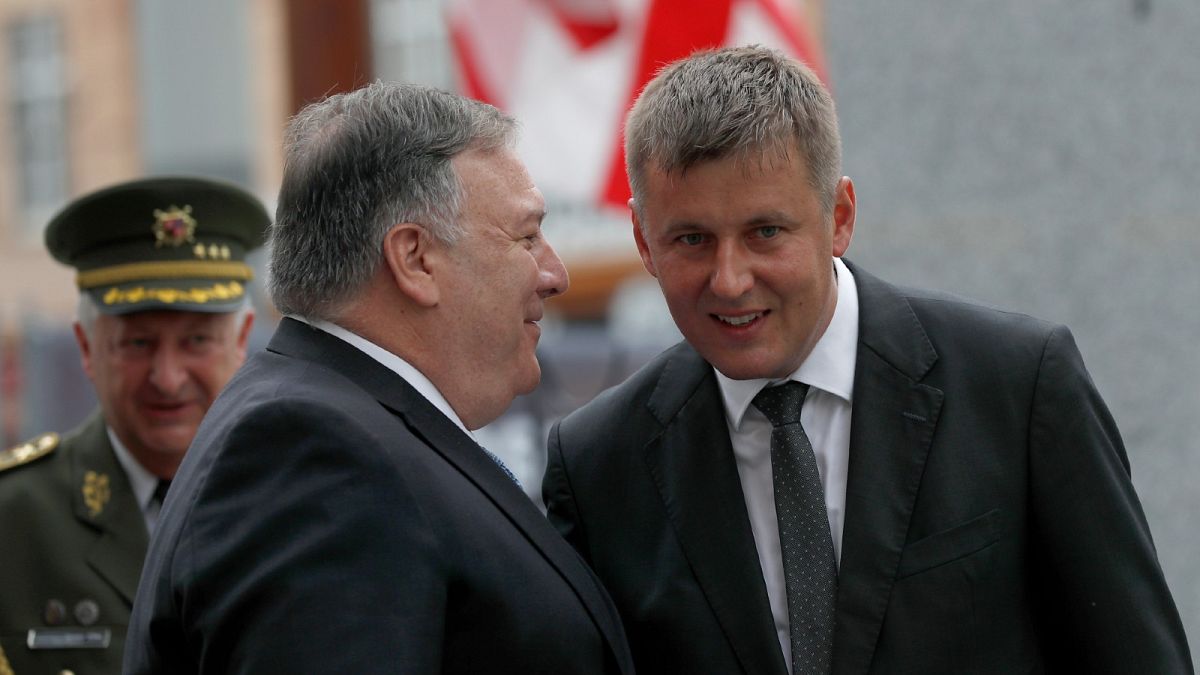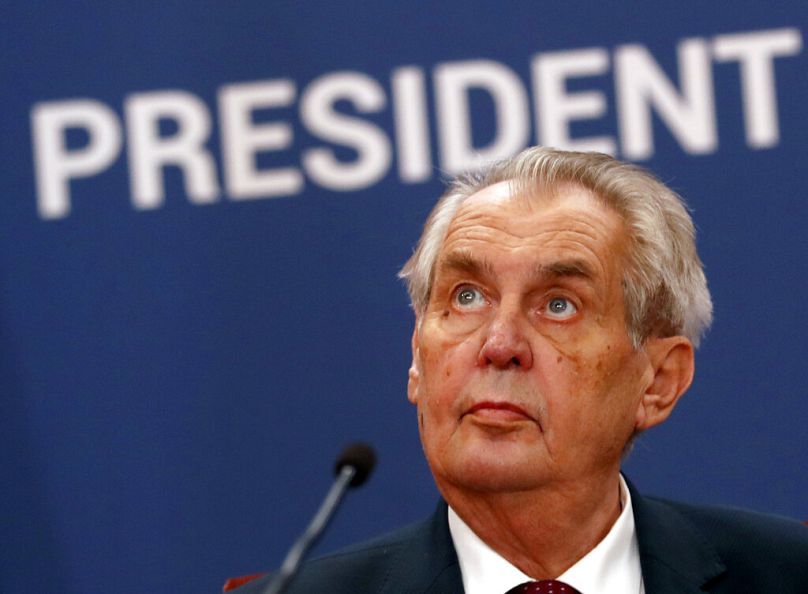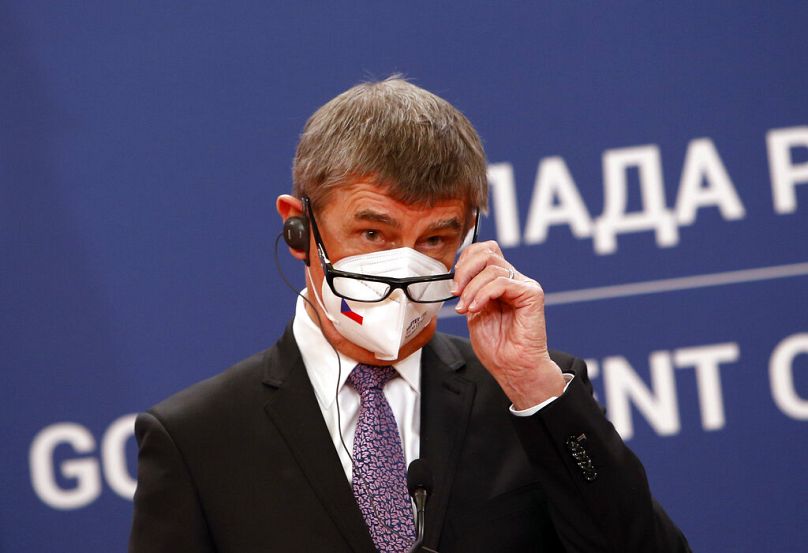Czech president Milos Zeman said he "terminated the duties of Tomáš Petříček in accordance with the Constitution". But what were the real reasons for the departure of the foreign minister?
Tomas Petricek said he was sacked recently as the Czech Republic’s foreign minister because his pro-Western views clashed with President Milos Zeman’s pro-Russia and pro-China sympathies, which has resulted in the pair sparring recently over whether the Czech Republic should accept Russian-made vaccines and bids from Russian firms over a planned nuclear power plant.
“It's no secret that I have been a thorn in the side of [Zeman] for a long time,” Petricek reportedly told the press on Monday after his dismissal.
Petricek has voiced his opposition to allowing a Russian company’s participation in the tender process for the planned €6 billion Dukovany nuclear power plant, the Czech Republic’s most expensive ever infrastructure project.
Zeman has been a leading advocate of Russian bidding, as well as the loudest proponent for purchasing Russia’s Sputnik V vaccines, something that Petricek also opposed.
Last week, the government also fired the health minister, Jan Blatny, another sceptic of using Russian or Chinese-made vaccines.
In fact, Zeman had demanded Blatny’s dismissal last month over this issue, a move denied by Prime Minister Andrej Babis at the time.
“Petricek has long held a foreign policy approach which put him at odds with Zeman. This had gone longer than recent issues of Sputnik V or Dukovany,” said Richard Q. Turcsanyi, director of the Central European Institute of Asian Studies at Palacky University.
**What role did this year's election play? **
But split opinions over whether the Czech Republic’s future lays to the east or west aren't the only reason for Petricek's departure.
His dismissal provides political elites with a window for horse-trading ahead of an expectantly close-run general election in October.
The ruling coalition is fast losing support.
Last week, Petricek failed in his bid to replace Jan Hamacek, the interior minister, as leader of the Czech Social Democratic Party (CSSD), the junior party in the ruling coalition. At an internal ballot, he picked up 95 votes from party delegates, compared with 140 for Hamacek.
Going into the leadership contest, Petricek bemoaned the Social Democrats for abandoning their ideals after years in coalition with Prime Minister Babis’ populist ANO party.
The CSSD agreed to form the minority coalition in mid-2018, just months after Hamacek became the party’s leader.
Despite being the party that governed the Czech Republic throughout much of the 1990s and 2000s, the Social Democrats’ popularity has slumped to near historic lows. According to the latest survey by Kantar CZ, a local pollster, the party would win just 3% of the popular vote if the general election was held today -- putting it behind all other major political parties -- and down from 7.2% of the vote it won at the last general election in 2017.
“It is in Hamacek’s interest to get rid of a rival. Zeman and Hamacek see eye to eye on this matter, though, not necessarily coordinating their positions,” said Ivana Karaskova, of the Association for International Affairs in Prague.
Hamacek will now lead the foreign ministry, as well as the interior ministry until a permanent replacement is found.
Hamacek’s foreign policy views are closer to Zeman’s, said Turcsanyi.
On Tuesday, Hamacek wrote on Twitter that the Social Democrats will nominate Jakub Kulhanek, one of his closest aides and currently deputy interior minister, as the new permanent foreign minister.
According to the political analyst Jiri Pehe, director of New York University in Prague, Kulhanek "has no standing of his own" in the CSSD, so poses no internal threat to Hamacek, and has close ties with a Chinese investment group, so may be more open to closer ties with China.
Kulhanek formerly worked as a consultant for CEFC Europe, part of Chinese conglomerate CEFC China Energy, which held major assets in the Czech Republic until they were taken over by Chinese state-owned investor CITIC.
The founder of CEFC China Energy, Ye Jianming, served as an advisor to President Zeman until he was arrested in Beijing in 2018 over bribery charges.
But, Pehe added, "we do not know whether Kulhanek will be more willing than Petricek to agree with a role for Russia in the Dukovany project or introduction of Sputnik [vaccines]."
Pehe reckons that Petricek's dismissal was mostly Hamacek's doing. "Hamacek had been under tremendous pressure from the [President's team] to get rid of Petricek because of his opposition to Dukovany and Sputnik, but Hamacek himself wanted to get rid of Petricek because he represented opposition to him in the party."
"Hamacek has decided to go along with Zeman, hoping it may bring the CSSD some votes from the Zeman electorate in the October elections," he added.
A pragmatic tit-for-tat?
The decision to remove Petricek also serves Babis’ interests, Karaskova said, as the prime minister’s own party is losing support as well: down to 22% of the popular vote as of early April, compared with 25% at the close of 2020 and almost 30% at the last general election, according to surveys by Kantar CZ.
Topping the polls, for now, is a new coalition between the Mayors and Independents group and the Pirate Party, currently the second-largest opposition party.
However, based on current projection neither the Pirates and Mayors coalition nor ANO are likely to win enough seats to form a government on their own, meaning that Babis will need to find new coalition partners, as well as count on the few seats the Social Democrats may pick up, if he wants to remain in office.
Since 2018, Babis’ minority coalition government has relied on the noncommittal backing of the 15 Communist politicians in parliament.
According to Karaskova, Babis’ decision to dismiss Petricek this week may be a “pragmatic tit-for-tat”.
For starters, it secures him the continued support of the Social Democrats under the party’s reconfirmed leader Hamacek, dissuading members of the coalition partner who agreed with Petricek that it had become too close to Babis.
“Babis can always hide behind Hamacek, saying that [Petricek’s dismissal] is an internal matter of CSSD and he respects Hamacek as a leader of the coalition party,” Karaskova said.
It also repairs some bridges between Babis and Hamacek, who was among several leading politicians who publicly vilified the prime minister for turning down an offer by the EU in late March for an additional 70,000 COVID-19 vaccines, after the Czech Republic, Austria and Slovenia objected to Brussels' plans for vaccine donations between member states.
“The prime minister negotiated other vaccines for the Czech Republic himself, he did not consult the government on the procedure,” Hamacek tweeted on April 2. “It is purely his responsibility and he has to explain to the citizens why we have lost 70,000 vaccines.”
Because Babis faces the prospect of losing October’s general election, Karaskova said, Babis also “needs Zeman’s support”, including his sway over elderly voters and his role, as president, in nominating the next prime minister. Both Babis’ ANO party and the new Pirates and Mayor coalition could gain enough cross-party support after October’s election to each try to form a government and the decision of which to allow to do so first may fall to Zeman.
In return, Zeman is now likely to be given a freer hand to shape Czech foreign policy, with reports suggesting that Babis may allow the new health minister to bypass the country’s drug regulator and permit the use of Russia’s Sputnik V vaccines.
However, it waits to be seen whether the country’s foreign policy agenda will be considerably altered between now and the general election in October.
“I think it is possible that the new CSSD minister [of foreign affairs] would adjust some positions, although I don't expect major changes,” said Turcsanyi, of Palacky University.
It’s perhaps not a coincidence that political tensions are now heating up at the same moment as the country’s COVID-19 pandemic situation appears to be improving. With a population of 10.7 million and 27,918 fatalities from COVID-19, the Czech Republic has the highest number of deaths per 100,000 people in the world, according to data from Johns Hopkins University.
However, daily infection rates are falling after more than months of strict lockdown. On Sunday, the authorities recorded 976 new COVID-19 infections, the first daily tally below 1,000 since September. The state of emergency came to an end on Monday after six months.


